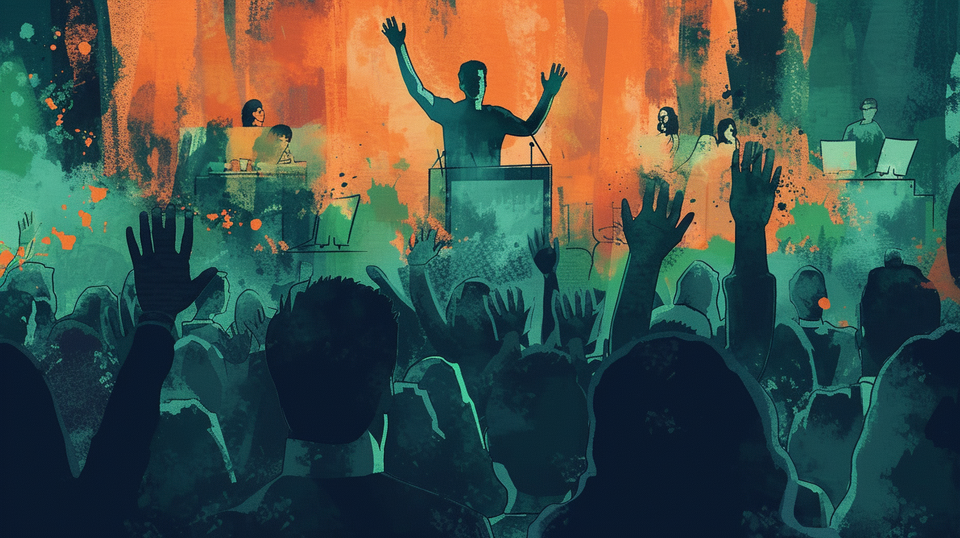Key Questions in Critical Futures Studies

Welcome back.
Last year, Jonas and I launched a community for Critical Futures Studies in Germany. Last week, I gave a talk at our second event, which inspired this week's article.
Key Questions in Critical Futures Studies
At the heart of Critical Futures Studies (CFS), as articulated by Sohail Inayatullah, lies the endeavor to “loosen the future.” Instead of creating new images of the future (in the form of scenarios, for example), the goal is first to identify and deconstruct the images of the future that are already there, in the room and the minds.
Picture yourself watching the latest keynote from the likes of Zuckerberg or Altman. You hear them declare, “This is the future!” and you might start wondering, “Wait? Why? And why do you want me to believe this is the future?” Welcome to CFS. It begins with asking questions.
In their fresh look at CFS in Beyond Capitalist Realism, Luke Goode and Michael Godhe suggested a foundational set of questions aimed at critically evaluating specific future visions.
Question to ask of a specific future:
- How is the future invoked?
- What kind of future is evoked?
- Who would want to live in such a future (and who would not)?
- What sort of people live in such a future?
- How are we expected to arrive at this future?
- What is the persuasive power of such a vision?
- What’s the history behind this vision of the future?
Furthermore, Goode and Godhe propose an additional framework for analyzing the broader context in which these future images emerge, termed the “political economy of the future”:
Questions to ask of the “political economy of the future”
- Who are the actors (institutions, individuals etc.) producing and propagating images of the future?
- What are the institutional arrangements (from scientific institutes to popular and online media) shaping the circulation and discussion of images of the future?
- How are ideas of the future discussed and contested in public life?
- Who are the agenda-setting and gatekeeping powers in the futural public sphere?
- What potential impact could this vision of the future have?
These questions are tremendously helpful in my work and even my everyday life. From client meetings to reading tech news, they provide a guideline to identify underlying assumptions, values, and motivations for rendering future narratives in particular ways. They reveal that most images of the future will tell you very little about the actual future but vast amounts about the interests and intentions of their proponents (Present futures).

If you're looking for one paper to read about Critical Futures Studies, this is it.
Worthy of Your Time
Our Shared Storm by Andrew Dana Hudson
Through speculative fiction, five interlocking novelettes explore the possible realities of our climate future.
If you're seeking an engaging introduction to foresight and futures thinking, 'Our Shared Storm' by Andrew Dana Hudson is a must-read. The book masterfully combines fun storytelling with educational insights. Hudson vividly brings to life five climate scenarios, originally based on those from the IPCC, through interconnected narratives set in the year 2054 at the COP in Buenos Aires. Each story features the same characters but with divergent backstories, highlighting the nuances and complexities of potential futures.
Reading this book concurrently with the last COP event in Dubai offered me an enriched perspective. It was as if the fictional scenarios in 2054 provided additional layers of context and detail to the real-world proceedings. This dual experience deepened my understanding of the climate issues discussed and the importance of the COP meetings.
I highly recommend 'Our Shared Storm' to anyone interested in climate change, storytelling, and future studies. It's particularly enlightening for those who appreciate a narrative approach to complex global challenges.

We're sorry we created the Torment Nexus
In this transcript of a talk the science-fiction writer Charles Stross gave last year, he goes deep on the connection of science fiction's influence on Silicon Valley and traces the route of some of the current trends back to their narrative origins. You can feel Stross' pain (and uttered apology), having written one of the most influential books for the whole crypto and web3 world: Accelerando (still worth reading).

Thank you for your attention.
If you find this newsletter valuable – the best way to support it right now is to ask me a question. What interests you in the futures field? What do you want to know more about? Hit reply or use the comment section to let me know.
Have a good one,
Johannes Kleske

Member discussion